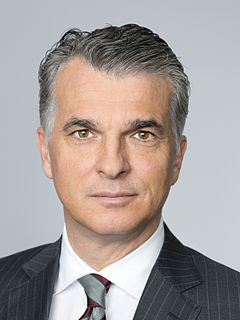A Quote by William J. Clinton
Over the past 7 years, we've tried to modernize the economy, and today what we're doing is modernizing the financial services industry, tearing down these antiquated walls, and granting banks significant new authority.
Related Quotes
By any measure, CapitalSource outperformed both our direct competitors and the financial services industry in general, particularly in the context of the near collapse of the financial services industry where 19 of the 20 largest financial institutions in the country either failed or were bailed out by the government.
That's the problem with the financial sector. Banks and the financial sector live in the short run, not the long run. In principle the government is supposed to make regulations that help the economy over time. But once it's taken over by the financial sector, the government lives in the short run too.
The problem of dealing with the financial industry is being addressed today. You can measure it with interest rates coming down. You can measure it with the quantity of loans, and that sort of thing. The problem is, that nobody wants to take the loans. Once the banks are willing to give it, that's only half the problem.
In a world of businessmen and financial intermediaries who aggressively seek profit, innovators will always outpace regulators; the authorities cannot prevent changes in the structure of portfolios from occurring. What they can do is keep the asset-equity ratio of banks within bounds by setting equity-absorption ratios for various types of assets. If the authorities constrain banks and are aware of the activities of fringe banks and other financial institutions, they are in a better position to attenuate the disruptive expansionary tendencies of our economy.































